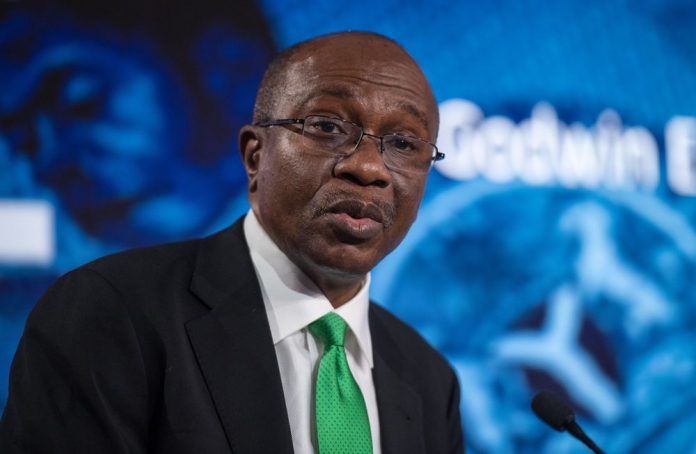Faced with the risk of recession, the Central Bank of Nigeria lowers its key rate by 100 basis points to 12.5%. Yet the institution fears the persistence of inflation. It calls for concrete measures on the part of the state.
The Monetary Policy Committee of the Central Bank of Nigeria (BCN), meeting on September 21 and 22, decided on further easing, “in light of the lingering uncertainties linked to the Covid-19 pandemic and the fall in crude oil prices “.
A long press release signed by Governor Godwin Emefiele specifies the outlines of this decision which surprised the markets. Indeed, Nigeria is facing a resurgence of inflation, which any central bank is supposed to fight with the weapon of high rates.
Yet central bankers are finding that a wait-and-see attitude prevails, while aggregate demand remains weak. They see “disruptions in global supply chains, mixed price developments, volatile and declining oil prices, and rising unemployment.”
The Monetary Policy Committee (CPM) observed a “moderate improvement” in global output, while recession became more widespread in the second quarter of 2020. Trend following the sharp decline in output growth in advanced economies and emerging risks of further deterioration in world output growth.
With the unprecedented and coordinated injection of liquidity by central banks and monetary institutions, the risk of another post-Covid-19 financial crisis can no longer be overlooked, the NCB fears. Which fears “a double deep global recession” when central banks around the world want to normalize their monetary policy.
In fact, conditions in global financial markets remain relatively tense, reflecting the lingering uncertainties. While markets are showing moderate signs of recovery, financial conditions have not yet fully eased as investors remain cautious about the lingering risk of a second round of lockdowns.
The specter of stagflation!
In Nigeria, real GDP contracted 6.1% in the second quarter of 2020, compared to 1.9% growth in the first quarter. This completes a cycle of “weak but positive” growth recorded by the country since 2017 – the year 2020 could end with a recession of around 9%, considers the consensus of economists.
The contraction in the second quarter was largely driven by the poor performance of the oil and non-oil sectors due to lockdowns to contain the spread of the pandemic. The oil sector contracted 6.6%, while the non-oil sector contracted 6% in the second quarter of 2020.
The CPM notes “the persistent weakness” of the main indicators of economic activity, such as the confidence index of purchasing managers in the manufacturing and non-manufacturing sectors, which fell further in August. The NCB considers that an easing of monetary policy would be likely to reassure economic operators, since the measure involves cheaper borrowing.
The Central Bank admits, however, that it faces a “dilemma”: the rise in prices is higher than expected, in particular due to food inflation. Likewise, in the short term, rising gasoline prices penalize the purchasing power of the population as the government decided to remove purchase subsidies.
Also, any risk of prolonged “stagflation” is not ruled out in Nigeria, warns the Central Bank, which nevertheless considers the consequences of the recession more significant.
Also, the CPM decided to reduce its key rate target from 100 basis points to 11.5%. Cash ratios and liquidity ratios imposed on banks are maintained.
The Committee stresses the “urgent need” for a combination of broad-based monetary and fiscal policy measures aimed at curbing inflation and combating the contraction in output. This will implies targeted investments by the tax authorities to restore the ease of doing business in the country.
On this point, the PMO believes that the tax authorities can build on previous efforts and articulate a clear strategy to attract private sector investment. “However, the Bank will however continue to take relevant measures to ensure that the risk of inflation damaging the economy is contained.”































